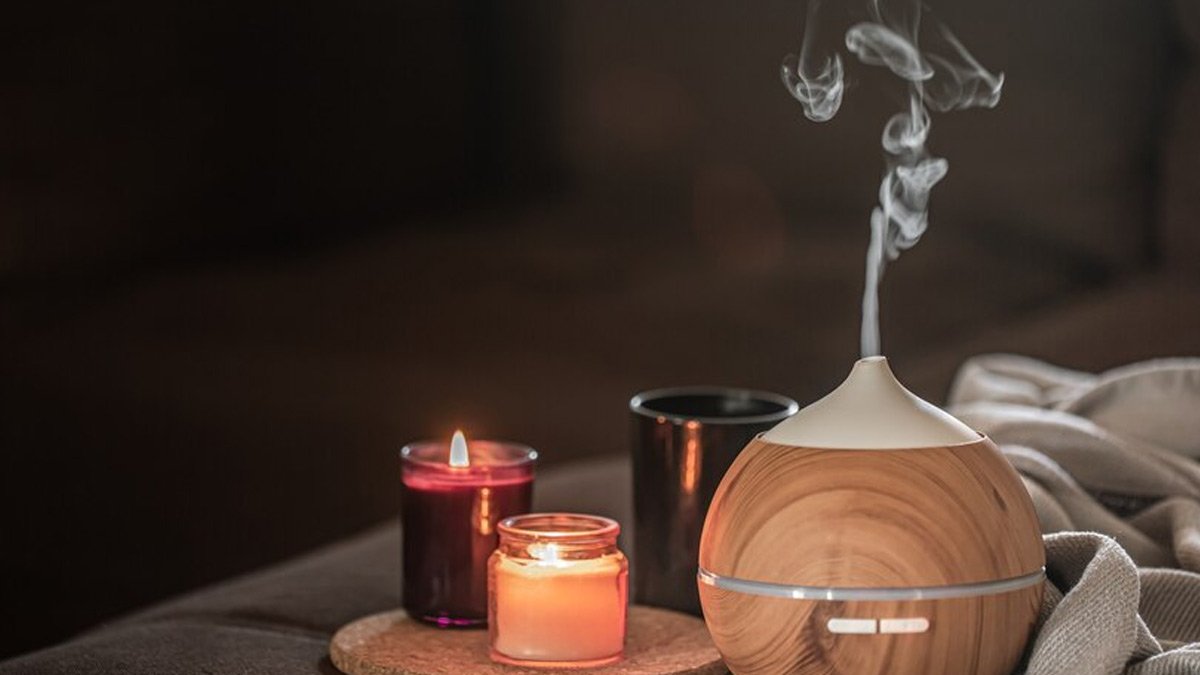Aromatherapy, the use of essential oils for therapeutic benefits, is becoming increasingly popular, especially among younger generations struggling with mental health issues. The effectiveness of aromatherapy is scientifically based on the connection between the sense of smell and the emotional centres of the brain.
To understand the science behind scent and aromatherapy, OnlyMyHealth Riddhima Kansal, Director, Rosemoor, Gurgaon; Our team also Dr. Gorav Gupta, Psychiatrist and Co-Founder, Emonese, NCR, Delhi Understand how aromatherapy can benefit your mental health.
Essential Oils and Aromatherapy
Speaking about the importance of inhaling essential oils for mental health, Ridhima Kansal explains, “When we inhale essential oils, their molecules interact with olfactory receptors in the nose, which send signals directly to the limbic system (the part of the brain responsible for emotions, memory and arousal).” This direct connection explains why certain scents can evoke powerful emotional responses and memories.
Lavender oil is a great example of how aromatherapy can benefit mental health. Studies have shown that inhaling lavender can reduce anxiety and improve mood, thanks to active compounds such as linalool and linalyl acetate. According to Kansal, these compounds interact with neurotransmitters in the brain, producing a calming effect similar to anti-anxiety medication, but without the associated side effects. “Similarly, bergamot oil has been shown to reduce levels of cortisol, the main stress hormone in the body, helping to relieve feelings of stress and anxiety,” adds Dr Gupta.
Read also: About Aromatherapy and Essential Oils for Holistic Healing
Known for its invigorating aroma, peppermint oil has been shown to enhance cognitive performance and reduce fatigue. “This makes it popular among students and professionals looking to increase focus and energy,” says Kansal. Scientific studies back up these benefits. For example, a study published in Frontiers in Psychology showed that the essential oil can ease symptoms of depression and anxiety, pointing to its potential as a complementary mental health therapy.
Another important aspect of aromatherapy’s efficacy is its effect on the autonomic nervous system. Dr Gupta explains, “Essential oils such as chamomile and ylang ylang have been shown to activate the parasympathetic nervous system, which is responsible for the body’s ‘rest and digest’ functions. This activation counteracts the sympathetic nervous system’s ‘fight or flight’ response and promotes a state of calm and relaxation. This physiological change can have a profound impact on mental health by reducing symptoms of stress and anxiety.”
Quality sleep and aromatherapy
Aromatherapy can also improve the quality of sleep, which is so important for mental health. “Essential oils such as lavender, valerian and cedarwood have calming properties that can help improve sleep patterns. Quality sleep is fundamental to mental health because it allows the brain to process emotions, consolidate memories and repair itself,” says Dr. Gupta. Lack of sleep often leads to increased stress, anxiety and depression, making the sleep-promoting effects of aromatherapy particularly valuable.
Read also: Aromatherapy Massage: How does it work to reduce anxiety, ease depression and boost immunity?
The psychological effects of aromatherapy are also influenced by the power of suggestion and ritual. The act of developing a calming routine, such as diffusing essential oils before bed, creates a sense of comfort and security. This ritual aspect enhances the perceived effects of aromatherapy and fosters a positive state of mind through consistent, mindful practice.
A word of advice
Kansal advises: “Aromatherapy is not a substitute for professional medical care, but can serve as a useful adjunct. For those dealing with the pressures of modern life, aromatherapy can be a natural and effective way to support mental wellbeing. “A growing body of research highlights the physiological and psychological benefits of essential oils, making them a trusted option for those seeking a holistic approach to mental health.
Conclusion
According to Dr Gupta, the science behind aromatherapy’s mental health benefits involves a multifaceted interplay between the olfactory system, neurotransmitters, the autonomic nervous system and psychological factors. Kansal concluded: “By harnessing the power of scent to affect the emotional centres of the brain, essential oils can promote relaxation, improve mood and enhance cognitive function.”

